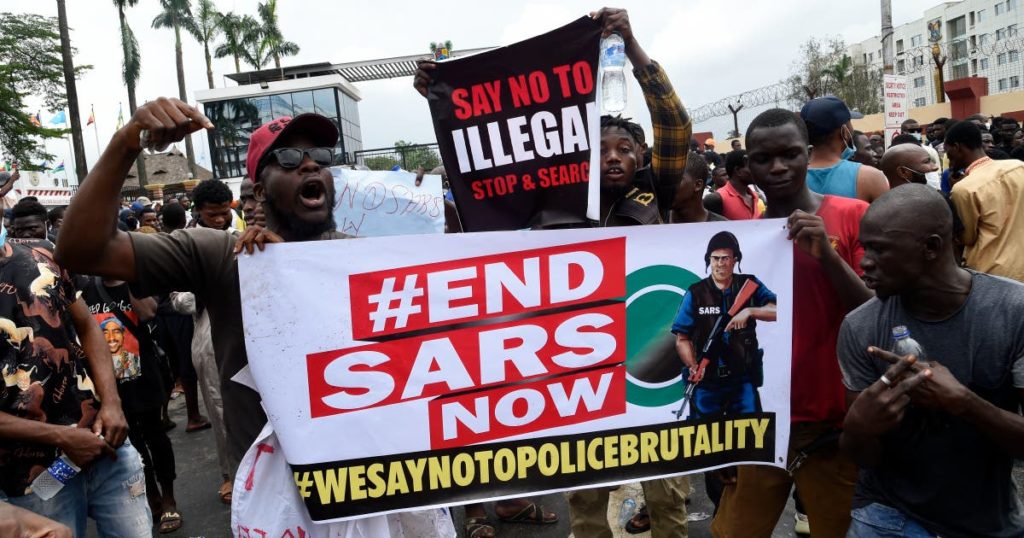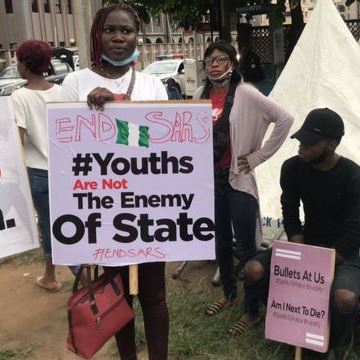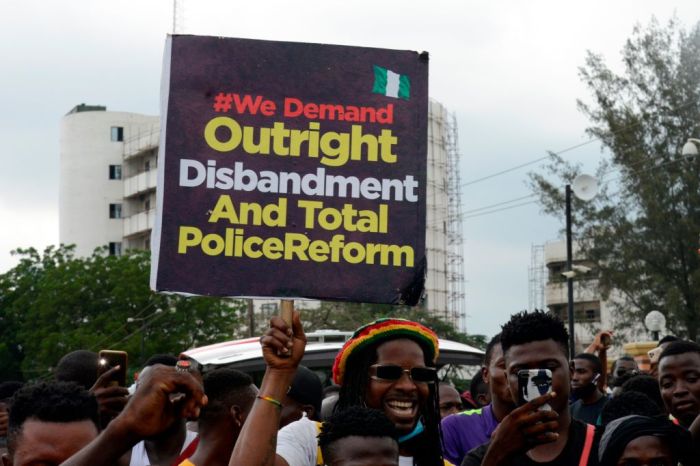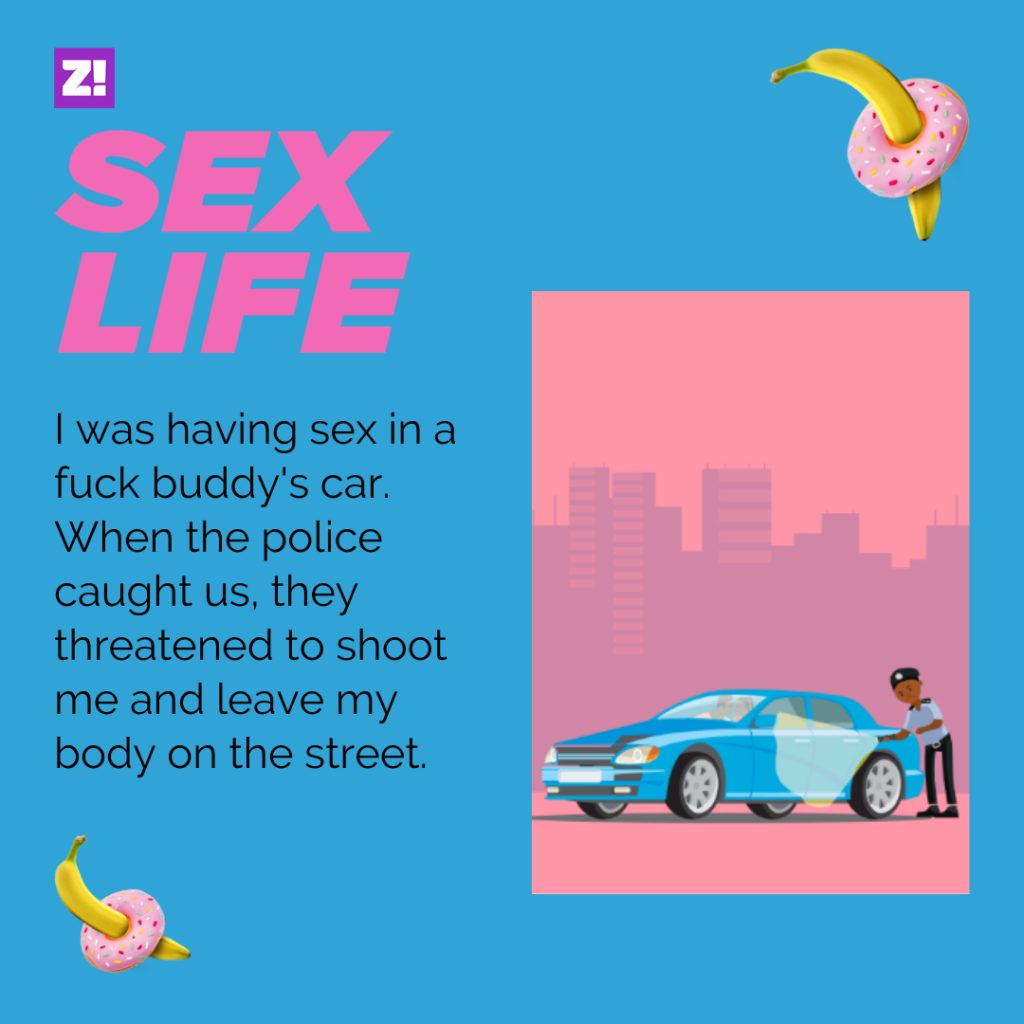On October 16, 2020, the National Economic Council recommended that the 36 states of the federation set up judicial panels of inquiry to investigate cases of police brutality by members of the disbanded Special Anti-Robbery Squad (SARS). Since then, state governments have established judicial panels to investigate cases of police brutality within their states.

1. ABIA STATE
On October 23, the Governor of Abia State, Okezie Ikpeazu, inaugurated a 17-man judicial panel of inquiry to investigate allegations of extrajudicial killings and brutality by security agents in the state. The chairman of the panel was Justice Sunday Imo, who was a retired Chief Judge of Abia State.
The Governor said that the panel should investigate killings of extrajudicial killings by the men and members of the Police Force and those of other security agencies, from 2015 to date; investigate all forms of police brutality, extortion and intimidation from 2015 to date; ascertain the immediate and remote causes of #EndSARS protest and other grievances associated with it.
The Governor mandated the panel to submit its report within 12 weeks. On July 6, the Abia State Judicial panel of inquiry submitted its 5-volume reports to the Governor of Abia State. The panel recommended over #511 million as compensation to victims of police brutality. Justice Imo declared that the panel received 86 petitions and 46 went through full hearing while the remaining were struck out.
2. ADAMAWA STATE
On October 20, Governor Ahmadu Umaru Fintiri Adamawa state approved the establishment of the eleven-member judicial panel to look into the alleged brutality by the Special Anti-Robbery Squad (SARS) in Adamawa State.
The Judicial Panel of Inquiry was headed by Justice Adamu Hobon (Rtd), and members of the panel constituted members of the judiciary, civil society organisations, security, youth and religious and student organisations.
The panel’s job was to receive and investigate complaints on police brutality or related extrajudicial killings, evaluate evidence and establish the nature of the abuses. The panel was also to establish whether there are people wrongly charged with crimes currently in custody, find out the reasons why they are in custody, find out whether they have been arraigned in court and establish how many have died in custody.
3. AKWA IBOM STATE
On October 20, the Akwa Ibom State Government set up a judicial panel to investigate complaints of police brutality, human rights violations and extrajudicial killings in Akwa Ibom state.
The panel was created after the State Executive Council meeting and was headed by Justice Ifiok Ukana (Rtd) and was made up of other youth representatives, student leaders, and other members from the Ministry of Justice, human rights commission and civil society organisations.
The panel received 143 petitions, and 28 were about extrajudicial killings and complete disappearance of suspects and death of persons in custody and 22 showed neglected litigations. 85 cases were on human rights cases and over 380 people testified at the panel. The panel submitted a report on 23rd July and its report was in four volumes.
3. ANAMBRA STATE
On October 16, 2020, the Anambra State Governor, Willie Obiano, set up a judicial panel of inquiry to investigate the allegations of human rights abuses by the Special Anti-Robbery Squad (SARS) in the state. The panel was headed by retired Justice V.N Umeh, and it was made up of 20 members. The panel was expected to submit its report within 30 days.
On February 13, 2021, five youth members of the judicial panel of inquiry resigned, claiming that the Anambra State Government had totally ignored the panel and the government had no regard for the victims of human rights violations, police brutality, extortion and extrajudicial killings in the state. The resigning members claimed that infamous SARS units like the Special Anti-Robbery Squad, Awkuzu and numerous other police outfits were still operating in the state.
The police officers of the Special Anti-Robbery Squad shunned the invitations of the Anambra State Judicial Panel, even though many petitioners complained of police brutality.
4. BAUCHI STATE
On October 28, 2020, the Bauchi State Governor, Bala Mohammed, inaugurated a 17-man panel of inquiry into alleged human rights violations by officers of the Special Anti-Robbery Squad of the Nigerian Police Force. At the inauguration, the governor stated that the panel was set up to address the violation of citizens’ rights in the state by receiving complaints and petitions from the public, identifying the culprits and proffering recommendations to the government.
The panel was headed by Justice Habibu Idris and the panel was mandated to submit its report within six months.
5. BAYELSA STATE
On October 21, 2020, the Governor of Bayelsa State, Duoye Diri, constituted a judicial panel of inquiry through a state radio broadcast. The Bayelsa State Government set up the panel in response to the demands of the #EndSARS protesters in the state.
The Bayelsa State panel of Inquiry was headed by Retired Justice Y.B. Ogola and the panel were given six months to complete its assignment.
The panel received 50 petitions and it recommended the prosecution of 11 police officers, the demotion of four police officers and the demotion of one police officer. The panel also awarded ₦21 billion as compensation to the victims of police brutality in the state. Eight cases were struck out at the panel and two were adjourned.
6. BENUE STATE
On October 21, 2020, the Benue State Government set up a judicial panel of inquiry to investigate cases of human rights violations, police brutality and extrajudicial killings in the state. The panel was headed by Justice Adam Onum, and the governor declared that the panel was to submit its report within six months.
The panel entertained many petitions including that of a 34-year old man, Terfa Gundu, who alleged that the police poured petrol on him.
The panel has not submitted its report to the Benue State Governor.

7. BORNO STATE
Borno state did not set up a judicial panel of inquiry in the state. Officials of the state claimed there were no cases of police brutality in the state.
8. CROSS RIVER STATE
On October 22, 2020, the Cross River State Government set up a judicial panel of inquiry to investigate the allegations of police brutality by members of the Special Anti-Robbery Squad. The panel was headed by Hon. Justice Michael Edem.
However, just a few days after the composition of the panel, members of the civil society in Cross River State complained about the composition of the panel, stating that the panel was not diverse enough. Many observers concluded that the panel was cherry-picked and the selection process was not transparent.
On November 11, 2020, the Cross River State panel adjourned due to “technicalities” about whether the panel had the power to investigate the police. The panel had received 39 petitions by the time it adjourned.
9. DELTA STATE
On October 19, 2020, the Delta State government formally inaugurated an eight-member panel of inquiry to investigate the allegations of police brutality and extra-judicial killings in the state. The panel was headed by Justice Celestina Ogisi (Rtd) and Omamuzo Erebe was the panel’s secretary.
On July 9, 2021, the Governor of Delta State, Sen. (Dr) Ifeanyi Okowa received the panel’s report. The Governor said that the Delta State Government will consider and implement the decisions of the panel, and that the state would do its best to support victims of police brutality and extra-judicial killings in the state.
The Delta State judicial panel of Inquiry received 86 petitions and it heard 49 cases while 37 were struck out. The panel recommended the payment of compensation to victims of police brutality in the state.
However, some human rights activists in Delta State claim that the Delta State government has not implemented the report and that there would be a procession to mark the one year anniversary of the #EndSARS protests if the government did not implement the report.
10. EBONYI STATE
On October 20, 2020, the Ebonyi State government set up an eight-member judicial panel of inquiry against police brutality, extra-judicial killings and human rights abuses in the state. The panel was headed by Justice Alloy Nwankwo.
The panel received 71 petitions and recommended the payment of ₦189 million to victims of extrajudicial killings in the state. The chairman of the panel also stated that security agencies involved in extrajudicial killings in the state were recommended for sanctions.
11. EDO STATE
On October 19, 2020, the Edo State government set up a 12-man judicial panel of inquiry to receive complaints from the public about police brutality in the state and to recommend measures for compensation of victims of police brutality in the state. The panel was given 90 days to complete its assignment and the chairperson of the panel was Hon. Justice Ada Ehigiamusoe.
After nine months, the Edo State Judicial Panel of Inquiry on Police Brutality submitted its report. The panel received 170 petitions, and it recommended the payment of compensation to the victims of police brutality in the state.
12. EKITI STATE
On October 19, 2020, the Ekiti State government set up a 10-member judicial panel to look into cases of police brutality and extrajudicial killings in the state. The panel was headed by Justice Cornelius Akintayo.
Three months after the panel was set up, the panel recommended over ₦1.5 million as compensation to six petitioners, including four policemen whose properties were violated during the #EndSARS protests.
In March 2021, the Ekiti State government presented ₦7.4 million to victims of police brutality in Ekiti State, following the recommendations of the Ekiti State Judicial Panel on Police Brutality.
The Ekiti State government formally received the report of the panel, and it promised to pay another ₦13.8 million to 28 victims of police brutality in the state. The Governor also promised to implement the recommendations of the Ekiti State panel Judicial Panel of Inquiry into allegations of human rights abuses by police officers in the state.

13. ENUGU STATE
On October 27, 2020, the Governor of Enugu State, Ifeanyi Ugwuanyi, constituted a nine-member Administrative Panel of Inquiry to look into cases of police brutality in the state. The panel was headed by Justice Frederick Obieze and it was mandated to conclude and submit its report within sixty days.
In March 2021, the panel submitted its report to the Enugu State Governor, and the governor stated that the government would implement the recommendations of the panel.
14. GOMBE STATE
On 31 October 2020, the Gombe State Governor, Inuwa Yahaya, inaugurated an 11-member commission to investigate cases of police brutality by members of the disbanded Special Anti-Robbery Squad (SARS) in the state.
As of November 2020, the Commission claimed that it had not received any petition yet.
15. IMO STATE
On October 19, 2020, the Imo State Governor, Hope Uzodinma, set up a 17-member Judicial Commission to investigate and make recommendations on cases of human rights violations and extra-judicial killings by members of the Special Anti-Robbery Squad (SARS) in the state. The panel was headed by Justice Florence Duruoha-Igwe.
In June 2021, the Imo State government received the report of the panel of the Judicial Commission on Police Brutality and Related Matters and the commission recommended that ₦770 million should be paid as compensation to victims of police brutality in the state.
On receiving the report, the Governor stated that the report would effectively guide the state government in tackling issues related to police brutality.
16. JIGAWA STATE
Jigawa State did not set up a Judicial Panel of Inquiry into human rights abuses by members of the Special Anti-Robbery Squad (SARS) in the state.
17. KADUNA STATE
On October 19, 2020, the Kaduna State government inaugurated a judicial panel to investigate human rights violations and police brutality in the state. The panel was headed by Justice David Wyom.
The panel held its inaugural meeting in December, 2020, and it stated that it had received a total of 28 petitions from the public as at then.
In June 2021, nine months after its inauguration, the panel concluded its public hearing on police brutality in the state, stating that it entertained 69 petitions throughout the period it sat.
18. KANO STATE
Kano State did not set up a Judicial Panel of Inquiry into human rights abuses by members of the Special Anti-Robbery Squad (SARS) in the state.
19. KATSINA STATE
The Kaduna State Judicial Panel of Inquiry received 61 petitions related to police brutality, human rights abuses and extrajudicial killings by members of the disbanded Special Anti-Robbery Squad (SARS).
The panel was headed by Justice Abbas Bawale and it commenced hearings on November 23, 2020. Most of the petitions to the panel came from the Funtua zone of the state. Other petitions came from the Daura and Katsina zones of the state.
20. KEBBI STATE
Kebbi State did not set up a Judicial Panel of Inquiry into human rights abuses by members of the Special Anti-Robbery Squad (SARS) in the state.
21. KOGI STATE
The Kogi State Governor inaugurated a 10-member panel of enquiry consisting of personnel from the police, State Security Service, Nigeria Security and Civil Defence Corps (NSCDC), National Human Rights Commission (NHRC), Ministry of Justice and the Nigerian Bar Association (NBA). The Kogi State government codenamed the panel Human Rights Special Intervention Group (HRSIG).
The chairman of the panel was Ibrahim Alhassan. He claimed that the panel received six petitions and that one of the petitioners claimed that his cow was detained in a police station since 2016.
The Kogi State Human Rights Special Investigation Group has not released a report of its panel hearings.
22. KWARA STATE
On October 20, 2020, the Kwara State government set up a 10-man judicial panel to look into the complaints of police brutality in the state. The panel was set up to investigate complaints of human rights abuses and extra-judicial killings by the #EndSARS protesters.
Justice Tunde Garba was announced as the chairman of the panel and the panel included representatives of the civil society organisations, youths, human rights organisations, the state Ministry of Justice.
In February 2021, the Kwara State Government received a three-volume report of the panel and he promised to implement the recommendations of the committee.
23. LAGOS STATE
On October 19, 2020, the Lagos State Governor, Babajide Sanwo-Olu inaugurated a 8-man Judicial Panel of Inquiry to investigate the alleged cases of police brutality and extrajudicial killings in Lagos State. The panel was headed by Justice Doris Okuwobi and the two youth representatives on the panel were Rinu Oduala and Majekodunmi Temitope.
The panel was mandated to six months and its job was to determine the causes of police brutality in the state, investigate the cases of police brutality, recommend compensations for the victims of police brutality and recommend the prosecution of culpable SARS officers.
The Lagos Panel received 230 petitions and it awarded ₦262 million to 19 petitioners, including to one Charles Otoo, a petitioner who claimed that he was shot by police officers the Ojodu Police Division on the evening October 21, 2020.
At the Lagos Panel, the Nigerian Army admitted to firing live rounds at “hoodlums” around the Lekki toll-gate protest ground. The panel has promised to submit its report to the Lagos State Governor very soon.
24. NASARAWA STATE
On October 27, 2020, the Nasarawa State Judicial Panel of Inquiry commenced its judicial hearings. The panel was headed by Justice Badamasi Maina (Rtd) and he told members of the commission to approach the commission with their complaints on police brutality by SARS officers in the state.
On 29 April 2021, the Nasarawa Panel submitted its report and it recommended ₦480 million as compensation for victims of police brutality in the state.
25. NIGER STATE
On 23rd October 2020, Governor Abubakar Bello of Niger State inaugurated a 14-man judicial panel of inquiry to investigate cases of police brutality and other cases of extrajudicial killings by the disbanded Special Anti-Robbery Squad (SARS). The chairman of the panel was Ishaku Usman and the secretary of the panel was Abdulrahim Tariq.
As of January 2021, the panel had concluded its hearings and the panel received 18 petitions. The Niger State Judicial Panel of Inquiry has not submitted its report of the panel hearings.
26. OGUN STATE
On 17th October 2020, the Ogun State Governor, Dapo Abiodun, set up a Judicial Panel of Investigation to investigate cases of police brutality and extrajudicial killings in Ogun State. The Governor appointed Justice Solomon Olugbemi (rtd) as the Chairman of the Judicial Panel.
The Ogun State government also set up a Victims’ Support Fund of ₦50 million to enable payment of monetary compensation to deserving victims. The Governor also promised that a forensic laboratory will be set up to aid and support police investigations and crime scene management.
The Governor of Ogun State also announced the setting up of the Ogun State will be establishing a Forensic Laboratory to support police investigations and crime scene management.
On July 10, 2021, the Ogun State Judicial Panel of Investigation on Police Brutality and Extra-Judicial Killings submitted its report to the state governor, Dapo Abiodun. The Governor recommended over ₦218 million as compensation to 42 victims and families. The panel made recommendations for the investigation and prosecution of deterrent police officers.
27. ONDO STATE
On 19th October 2021, the Ondo State Governor approved the constitution of a Judicial Panel of Inquiry against the alleged illegal activities of the officers of the Nigeria Police Force in Ondo State. The Chairperson of the panel was Hon. Justice Salisu Adesola Sidiq (rtd), and the panel was given six months to complete its assignment.
The Ondo State Judicial Panel recommended ₦755 million for the compensation of the victims of police brutality and human rights violation by the police in Ondo State.
The panel received 77 petitions, out of which 14 were criminal matters and 63 were civil cases.
28. OSUN STATE
On October 23, 2020, the Osun State Governor inaugurated a judicial panel of inquiry to investigate the human rights abuses by disbanded members of the Special Anti-Robbery Squad (SARS). The panel was chaired by Akin Oladimeji, a retired judge of the state high court.
On August 5, 2021, the Osun State Governor received a report of the Judicial Panel, and he promised that the government will implement the recommendations of the panel.
For a long time, the report of the Osun State panel remained inconclusive. Seven out of the 13 members of the panel disowned a report of the panel allegedly submitted to the governor by other members of the panel.
29. OYO STATE
On November 10, 2020, the Oyo State Government inaugurated a Judicial Panel of Inquiry to investigate cases of extrajudicial killings and police brutality in Oyo State. The panel was headed by Justice Bolajoko Adeniyi and the panel had eleven members.
On July 14, 2021, the Oyo State Judicial Panel concluded its panel hearings. The panel received 163 petitions and the panel promised that it would submit its recommendations.
30. PLATEAU STATE
On 17 November 2020, Plateau State Governor Simon Bako set up the Plateau State Judicial Panel of Inquiry to look into police brutality and extrajudicial killings in the state.
The panel was headed by Justice Philomina Lot and the panel was given six months to complete the assignment.
31. RIVERS STATE
On November 24, 2020, the Rivers State Governor, Nyesom Wike, inaugurated a Judicial Panel of Inquiry to look into the cases of police brutality by operatives of the Special Anti-Robbery Squad (SARS) in Rivers State.
The panel was headed by Justice Chukwunenye I. Uriri (Rtd) and the panel’s job was to identify victims of police brutality in Rivers State and recommend punishments for perpetrators of police brutality in the state.
On 19 February 2021, the Rivers State Governor received the panel’s report and he said the state’s panel received 190 petitions. Governor Wolf said the state would produce a white paper and present it to the Inspector General of Police (IGP).
32. SOKOTO STATE
Sokoto State did not set up an #EndSARS Judicial Panel of Inquiry.
33. TARABA STATE
On October 22, 2020, the Taraba State Governor, Darius Ishaku, set up a 10-man Judicial Panel of Inquiry and Restitution for victims of police brutality and extrajudicial killings by members of the Special Anti-Robbery Squad (SARS) in the state.
The panel was headed by Justice Christopher Awubra and it said it had received 11 petitions by November 9, 2020.
On 17 May, 2021, the Taraba State Judicial Panel concluded its hearings but no compensation was awarded to any individual. The panek received 34 petitions throughout the times that it sat.
34. YOBE STATE
Yobe State did not set up an #EndSARS Judicial Panel of Inquiry.
35. ZAMFARA STATE
Zamfara State did not set up an #EndSARS Judicial Panel of Inquiry.





